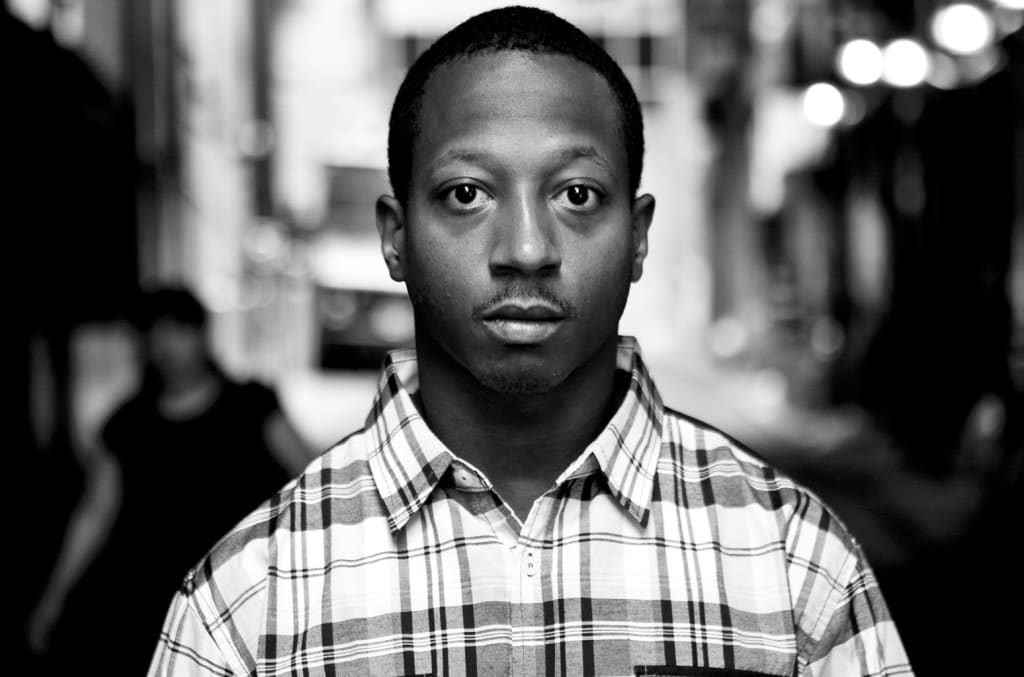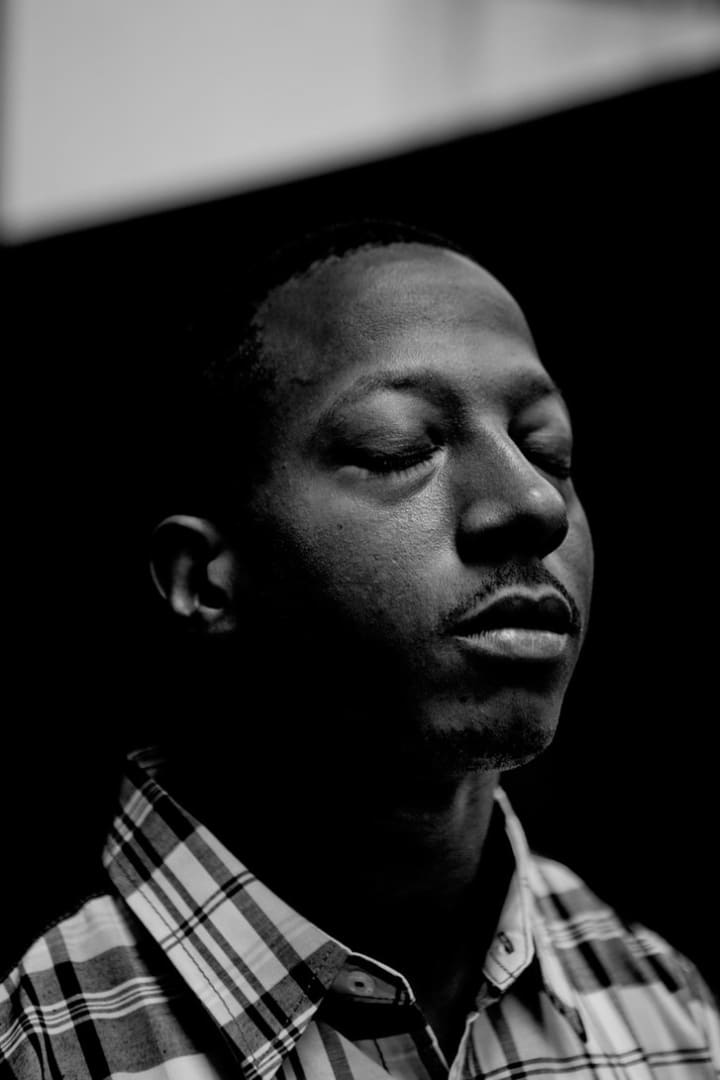The Gut-Wrenching & Utterly Heartbreaking Story of Kalief Browder
A young man abusively propelled through the systems of America.

Nowadays, the topic of conversation always seems to be what the best shows are to watch on Netflix, whether it be Riverdale, Orange is the New Black, or the newest season of Stranger Things... but in this day and age, it seems like we’re completely losing focus on the incredibly poignant and alarmingly important shows that allow us to really reflect and question what is happening to the world we live in.
Firstly, if you haven’t watched TIME: The Kalief Browder Story, start there, then come back to read the rest of this article.
What’s shocking is the fact that prior to even watching this docu-series, I had no idea who Kalief Browder was, what his story consisted of, and how what happened to him severely affected his state of mind and his family. Since birth, Kalief was already an orphan, and was placed into the system through Child Protective Services. Luckily, he was adopted by Venida Browder, a woman already with experience in childcare, and loving her fostered children as if they were her own. In her lifetime, she took care of 34 children as well as her biological children.
With a lack of a father figure in his life, Kalief grew up not really knowing or having a bond with him, and looked for that sense of family in the streets of Bronx, New York City. Eventually, he found himself in the centre of a small gang, where he was first arrested for joyriding. He was tried as an adult. Long story short, Kalief was accused of robbing a male a few months after being charged for the joyriding incident, and he and his friend were stopped by police. Kalief had been victim of several stop-and-frisks at the hands of the police before, and thought nothing more of it. He was later brought to the local precinct where a police officer and prosecutor interrogated him for several hours and told him he would most likely go home at the end of the process. How wrong he was.
During the interview, Kalief denied any knowledge or participation in the robbing, but ended up being charged with grand larceny, assault, and robbery. Since he was on probation at the time, he was not released, but was offered the option to pay $3,000 in bail, however, his family were unable to make the amount. Already, this shows that the American justice system sends people to prison based on them not being able to afford bail. He was then sent to Rikers Island (which I believe was a punishment in itself, as the prison is notorious for its corruption and constant lack of control over inmates with increasingly high rates of prison violence and brutality) where he was constantly targeted and abused by both prisoners and the guards.
With a thick skin and an optimistic mentality, Kalief began to take every kick, punch, hit, and beating, as the prisoners continued to threaten him in joining an affiliation which he refused to be associated with. Due to this unimaginable amount of abuse, Kalief had to be placed in solitary confinement to avoid being a target of prison violence. He later decided that he needed to improve his physical strength in order to defend himself whenever confronted by an inmate.
Several incidences continued to occur during Kalief’s time in prison, where guards would punch prisoners and leave them with bloody noses, broken bones, and fractured ribs. On many occasions the guards would threaten prisoners if they attempted to report their injuries. Another event that ensued was Kalief’s altercation with a guard who verbally spoke to him in an abusive manner. Kalief reciprocated this, and said something smart to the guard, who in turn, began to use excessive force by throwing Kalief to the ground, where several other guards also arrived at the scene and continued to weigh him down and subdue him—the guard was in no immediate danger whatsoever, and given the fact that Kalief was handcuffed, this just shows how unnecessarily he was maltreated not only then, but in many instances.
On another instance, Kalief was spat at by an inmate, and in retaliation, he swung at him. From this, he was jumped by 15 men who attacked him by repeatedly punching, kicking, stomping, and hitting him continuously all at once. In the block he was in, there were only two guards present who did not do enough to ensure his safety, almost as if it were deliberate. In order to terminate the fighting, Kalief was then placed in an isolating chamber which is locked electronically, and is made of metal, however, an inmate managed to kick it open, and the violence continued. The only way a prisoner would've been successful in opening the door of the chamber is if it weren't even locked in the first place. The guards did not take the proper actions in how to effectively maintain control, and chose to not call or summon extra support to diffuse the situation as they would if a typical scenario like this were to occur. They wanted to break him. In turn, Kalief ended up spending the majority of his prison sentence in solitary confinement, due to his constant fights with inmates.
Kalief spent 800 days in solitary confinement, which is almost 100 times the recommended amount for any prisoner (no matter the crime) to remain in such conditions. Even when isolated, Kalief was beaten by guards when in the shower and continued to receive verbal abuse from them. Given the fact that Kalief was 16 when first arriving at Rikers, these were extreme conditions for him to be exposed to, where the isolation became almost unbearable, as he suffered from paranoia, delusions, hallucinations, mental instability, and psychological problems. Many times, Kalief asked the guards if he could see a psychiatrist, as he was not feeling right, and they continued to dismiss his requests, while starving his many hours and days at a time. Due to the overwhelming abuse during his time at Rikers, mentally, he was unable to tolerate living in such a dehumanising environment that he attempted suicide several times. On one occasion, Kalief attempted suicide which two guards witnessed and did nothing to help him—they just watched and egged him on and even encouraged him kill himself. Slowly losing consciousness, the guards entered Kalief’s cell, cut him down from the noose, and proceeded in beating him as punishment for attempting to commit suicide.
Time and time again, whenever Kalief was brought to court to discuss his case, he was always offered a plea deal, which he refused as he protested his innocence. He did this at a risk, considering that if he were ever found guilty or convicted, he would’ve been given an even longer sentence for up to 15 years in prison. The prosecution were thoughtless and despicable in the way they carried the case, as they continuously postponed Kalief’s case, and extended dates in which he was supposed to go to court, meaning that every time he would be presented in front of a judge, he would only get sent back to prison. With no conviction, Kalief should've been released from Rikers, but the prosecution continued to give excuses like: "the arresting officer is on holiday" or "we are trying to get in contact with the witness" who was now already in another country.
Kalief's case was thrown around and carelessly evaluated, but after three years of being at Rikers Island for a crime he didn't even commit, the judge had no choice but to release him due to a lack of evidence.
Even after being released, Kalief suffered a lot from intimidation from the police, and was being prescribed medication that had a 17% rate in the individual committing suicide. Kalief was resilient and determined to make a future for himself, and enrolled at Bronx Community College. He worked hard and got good grades, but still suffered from the trauma of his time at Rikers, and was offered counseling to aid him in releasing some of the conflicting thoughts in his mind. When Kalief was asked about how his case was going, he said he "didn't want to talk about it" and was shot at by an unknown male. Kalief's mother, Venida, attempted several times to try the so-called "justice" system for what they did to her son, but to no avail, no judge, guard, or individual who added to Kalief's demise was held accountable, and none of them accepted blame for what happened to him either. With Kalief receiving threats from unknown numbers saying "we warned you", he reached a breaking point and took his life on June 6, 2015.
Venida, who later discovered Kalief's body hanging from the window of his room, was traumatized and blamed herself for allowing her son the privilege of going out to a party the night he was arrested. With her health slowly deteriorating, and her suffering from constant heart problems, Venida died of a broken heart on October 14, 2016. Kalief's brother, Akeem Browder, and the rest of his siblings continue to this day to maintain his legacy and fight for the justice he so rightfully deserves.
Kalief was a truly resilient young man who managed to withstand the unimaginable and defended himself to the very end, even when the justice system tried to convince him he was guilty from the very beginning. His optimism, faith, and hope that he would be released from prison is what kept him going, despite the fact that 99 percent of people that would've been in his position would have accepted a plea deal, even if they knew they were innocent of a crime.
There is something truly disturbing about America. Not just the justice system, but decades of oppression, racism, racial profiling, police brutality, inequality, and current president Donald Trump. The constant downfall of this nation is worrying, and it seems like things have truly taken a turn for the worse; we've reached an all time low.
Wherever Kalief is now, I hope is resting peacefully, and I would very much have liked to meet him and shake his hand, and tell him how proud I am of his determination and bravery even in the darkest of times. Every now and then, I mourn him and his mother's death, as if I knew him personally, but after hearing his story, I feel like I know exactly who he was and what kind of person he was.
Where there is light, there is hope.
I wish Akeem and his family the very best of success, and hope that sooner, rather than later, each and every individual responsible for Kalief's death is held accountable to the highest regard.
A truly inspirational young man.
Rest in peace, Kalief Browder.







Comments
There are no comments for this story
Be the first to respond and start the conversation.